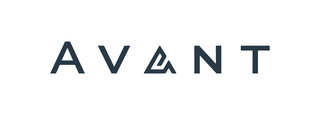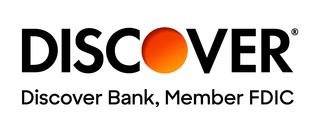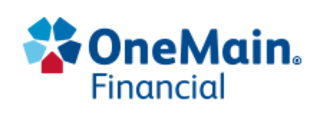12 Best Debt Consolidation Loans of April 2024
*Rates and APYs are subject to change. All information provided here is accurate as of March 25, 2024
Debt consolidation can be an effective way to pay off large balances faster, especially if you have multiple high-interest debt payments to make every month.
Compare our picks for the best debt consolidation loans and read our guide to find out how consolidating can help reduce your debt, simplify your personal finances and save you money in the long run.
Money’s Main Takeaways
- Debt consolidation loans are an excellent, fiscally responsible way to pay off high interest debt as long as you qualify for a favorable interest rate, make your loan payments on time and don’t accrue any more bad debt in the process.
- The best debt consolidation loans offer prequalification, online approval, flexible terms, competitive interest rates, no fees and no prepayment penalties.
- Discover, Lightstream and SoFi offer some of the best loan options across all the companies we reviewed.
Why Trust Us?
Our editors and writers evaluate debt consolidation loans independently, ensuring our content is precise and guided by editorial integrity. Read the full methodology to learn more.
- Reviewed 22 providers
- 1,000+ hours of research
- Based on 20+ data points, including cost, terms and customer reviews
Our Top Picks for Best Debt Consolidation Loans of April 2024
The companies listed below are organized alphabetically.
- Accredited Debt Relief - Best Debt Settlement Service
- Achieve - Best Online Quote
- Avant - Best Financial Resources
- Best Egg - Best for Easy Application
- Discover - Best for Credit Card Debt
- Fiona - Best for Comparing Lenders
- Happy Money - Best for Multiple Options
- LightStream - Best for Large Loans
- OneMain Financial - Best for In-Person Service
- PenFed - Best for Small Loans
- SoFi - Best for No Fees
- Upstart - Best for Flexible Qualification
Best Debt Consolidation Loans Reviews
- Assists borrowers with debt management
- Doesn't charge a fee until all debts are settled
- Could match customers with lenders through an affiliate program if needed
- Minimum of $20,000 debt
- Charges a fee of 15-25% of the debt amount
- Origination fees for personal loans range from 1% to 6% of the financed amount
- APR
- 4.9%-35.99%, depending on loan affiliates
- Loan amount
- $1,000-$100,000, depending on loan affiliates
- Term options
- 4 to 84 months, depending on loan affiliates
- Minimum Credit Score
- Depends on loan affiliates
Why we chose it: Accredited Debt Relief is primarily a debt settlement service that helps people consolidate and renegotiate their debt.
Accredited negotiates with your creditors to reduce your debt and charges a fee of 15-25%. While that may seem high, Accredited could reduce your debt by as much as 50%, leaving customers paying much less than they originally owed. In addition, Accredited will not charge any fee until a plan has been agreed on and there is a clear path forward.
Accredited also offers debt consolidation loans if that is determined to be a better course of action for the client.
Read our full review of Accredited Debt Relief.
- Online application
- Same-day approval
- Loan funding in one to three business days after approval
- Limited terms
- Origination fee of 1.99%-6.99%
- APR:
- 8.99% to 35.99%
- Loan amount:
- $5,000-$50,000
- Term options:
- 24 to 60 months
- Minimum Credit Score:
- Not specified
Why we chose it: Achieve offers an extremely simple online widget where you can receive a loan quote in one minute.
Achieve offers personal loans for debt consolidation featuring same-day approval and between one to three day funding after accepting the loan offer.
- Funded one day after approval
- No prepayment penalty
- Avant mobile app for iOS and Android
- Administration fee of up to 9.99%
- Late and returned payment fees
- No Autopay discount available
- APR:
- 9.95%- 35.99%
- Loan amount:
- $2,000-$35,000
- Term options:
- 12 to 60 months
- Minimum Credit Score:
- Not specified
Why we chose it: Avant boasts an extensive financial blog, online resources, and multiple ways to talk to live representatives.
Avant features loan pre-approval, Autopay and a mobile app available where customers can manage their loans. Customer service is available online, via email or by phone.
- Approval in minutes
- APR from 8.99%-35.99%
- Funds within 24 hours after approval
- Personal loan calculator
- Origination fee of 0.99-8.99% of the loan amount
- Origination fee on a loan term 4-years or longer will be at least 4.99%
- High income requirements to qualify for the lowest rates
- APR:
- 8.99%- 35.99%
- Loan amount:
- $2,000-$50,000
- Term options:
- 36 to 60 months
- Minimum Credit Score:
- 700+ to qualify for best rate
Why we chose it: Best Egg offers a fast online application that enables customers to get approved in minutes.
Best Egg’s platform provides a simple and convenient online application process, facilitating access to financial assistance. Personal loan options include consolidating multiple loans into a single loan or refinancing credit card debt. The company provides personal loans ranging from $2,000 to $50,000.
Read our full review of Best Egg personal loans.
- Pays lenders directly
- Same-day approval
- You can return loan funds within 30 days
- You can apply online or by phone
- Minimum household annual income of $25,000
- Late payment fee of $39
- Funds cannot be used to pay secured loans or Discover credit cards
- APR
- 7.99%- 24.99%
- Term options:
- $2,500-$40,000
- Term options
- 36 to 84 months
- Minimum Credit Score
- Not specified
Why we chose it: Discover’s low interest rates make it our top choice for best debt consolidation loan for credit card debt.
Upon approval, Discover will pay your credit card issuers within one business day, quickly canceling your balances. Discover also doesn’t charge any origination or prepayment fees, and its personal loans have some of the lowest minimum APRs available, making them far preferable to continuing to pay high credit card interest rates.
- Partners with TransUnion to provide your credit score
- Online application process and loan calculator
- Loan products for borrowers with poor credit
- Some online lenders offer personal loans up to $250,000
- Credit requirements depend on the company selected
- Some of its lenders will charge an origination fee of up to 6% of the loan amount
- APR
- Depends on the lender you're matched with
- Loan amount
- Depends on the lender you're matched with
- Term options
- Depends on the lender you're matched with
- Minimum Credit Score
- Depends on the lender you're matched with
Why we chose it: Fiona ranked as best for comparing personal loan lenders as its marketplace enables borrowers to browse and compare multiple lenders based on criteria like creditworthiness and location.
Fiona offers personal loans for debt consolidation from an array of lending partners and for all types of credit, from poor to excellent. It partners with renowned companies such as LendingClub, SoFi, Avant and Marcus by Goldman Sachs.
Read our full review of Fiona personal loans.
- Payoff loan with customizable terms, rates and monthly payment
- APRs start at 12.45%
- Pays creditors directly
- Loans start at $5,000
- Origination fee of 0%-5% of the loan amount
- Customers report prolonged approval time
- APR:
- 11.72%- 17.99%
- Loan amount:
- $5,000-$40,000
- Term options:
- 24 to 60 months
- Minimum Credit Score:
- Not specified
Why we chose it: Happy Money has a free consultation where they assess your financial situation and offer you the most suitable options based on the assessment.
Happy Money includes offers based on the best rate, lowest monthly payment and quickest repayment time. The company doesn’t charge any application, prepayment or late fees. However, it does charge an origination fee of up to 5% of the loan amount.
- No fees for loan origination, late payments or prepayment
- Borrowers with excellent credit can get a lower interest rate
- 0.50% rate discount for setting up Autopay
- Doesn't provide loan pre-approvals
- Doesn't accept loan applications via phone or fax
- Autopay discount only available before loan disbursement
- APR
- 8.99% - 24.39%
- Loan amount
- $5,000-$100,000
- Term options
- 24 to 144 months, depending on the loan type
- Minimum Credit Score
- 660
Why we chose it: LightStream is our top choice for large loans, considering its $100,000 limit and flexible repayment terms of two to 12 years.
LightStream offers personal loans up to $100,000. Though they are not the only lender we evaluated with this high borrowing amount, they do have the widest term range – 24 to 144 months. This makes Lightstream the most flexible option for paying back large loans. However, Lightstream requires good to excellent credit, an established credit history, various open accounts and a stable income.
Read our full review of LightStream personal loans.
- Debt consolidation calculator
- Brick-and-mortar locations
- Loan specialist counseling
- APR from 18%-35.99%
- Late payment fees from $5 to $30 or 1.5%-15% of your loan amount
- Origination fees from $25 to $500 or 1%-10% of your loan amount
- APR:
- 18.00%- 35.99%
- Loan amount:
- $1,500-$20,000
- Term options:
- 24 to 60 months
- Minimum Credit Score:
- Not specified
Why we chose it: OneMain Financial is an ideal choice if you’d rather face to face interaction with a loan officer when deciding on a consolidation loan option.
OneMain Financial offers online and in-person banking, with branches in 44 states. It features secured and unsecured debt consolidation loans from $1,500-$20,000 and terms from 24-60 months. To obtain the lowest rate on large loans, OneMain requires collateral.
- Apply and check application status online
- Accepts co-borrowers
- No origination fee or prepayment penalty
- You need to be a credit union member for disbursement
- No Autopay discount
- APR
- 7.99% - 17.99%
- Loan amount
- $600-$50,000
- Term options
- 12 to 60 months
- Minimum Credit Score
- Not disclosed
Why we chose it: With its $600 minimum loan amount, high customer satisfaction and low interest rates, PenFed is our top pick for best debt consolidation loan for debt under $1,000.
PenFed is a members-owned federal credit union. Becoming a member is a good idea because federal credit unions typically offer more favorable loan terms, such as
Borrowers looking for a small loan will be glad to know that PenFed has a $600 minimum you can apply for. However, PenFed is a members-owned federal credit union. You don’t have to be a member to check your rates and get pre-approved, but you will have to become a member to apply. This isn’t necessarily a bad thing as federal credit unions typically offer more favorable loan terms, such as lower interest rates and fewer fees.
Read our full review of PenFed personal loans.
- Unemployment protection
- Pays lenders directly
- Accepts joint applications
- Loan disbursement in one or two business days unless paid directly to creditors
- Term range isn't as varied as competitors
- Not open to Mississippi residents
- Co-applicant must live in the same residence as the primary borrower
- APR
- 8.99%-29.49%
- Loan amount
- $5,000-$100,000
- Term options
- Two to seven years
- Minimum Credit Score
- No minimum specified, but lower scores could affect eligibility, terms, and loan rates
Why we chose it: SoFi offers loans with no fees and many opportunities for discounts.
SoFi ‘s credit card consolidation loans don’t charge any origination, prepayment or late payment fees; additionally, they offer multiple ways to get discounts on their rates. If a borrower enrolls in Direct Pay, a service where SoFi pays creditors directly, they’ll obtain an additional 0.25% APR discount.
Read our full review of SoFi personal loans.
- Loans from $1,000-$50,000
- No prepayment penalty
- Only offers three and five years terms
- High origination fee
- APR:
- 7.8% - 35.99%
- Loan amount:
- $1,000-$50,000
- Term options:
- 36 to 60 months
- Minimum Credit Score:
- Not specified
Why we chose it: Upstart considers other information in addition to your credit score when deciding on your application.
Upstart will look at factors such as your employment history and education when you apply, not only your credit score. Their debt consolidation loans range from $1,000-$50,000. Potential borrowers can obtain pre-approval with a soft credit pull that won’t impact their credit score. Most loans are funded the next business day after approval.
Read our full review of Upstart personal loans.
Debt Consolidation Loans Guide
In this section we will explore all aspects of debt consolidation loans. We’ll delve into how to get a debt consolidation loan and how they work, how to choose the best option for your situation, and alternatives to debt consolidation loans should they not be the ideal choice for you.
Read on to explore the different debt consolidation loan options available to you, and how they can help you to finally become debt-free.
- What is a debt consolidation loan?
- How do debt consolidation loans work?
- How to get a debt consolidation loan
- How to choose the best debt consolidation loan
- Alternatives to debt consolidation loans
What is a debt consolidation loan?
A debt consolidation loan specifically allows you to refinance and combine multiple types of debt — credit card balances, auto loans, medical bills or personal loans — into a single loan. This new loan is typically fixed rate and allows the borrower to make a simple monthly payment.
People consolidate debt to potentially reduce their overall interest rates and pay off their debts more efficiently.
In addition to debt consolidation loans, it is also common to use balance transfer credit cards to consolidate debt. Learn more about all the options by reading our articles on the best personal loans and best balance transfer credit cards.
How do debt consolidation loans work?
Debt consolidation loans enable you to combine other forms of debt into a single, lower interest loan with more favorable terms. When you get quotes for a debt consolidation loan, your credit score will dictate the kind of rate you can get. If the rate is lower than your current debt, a debt consolidation loan is a no brainer. However, make sure to factor in any fees the loan provider may charge as well.
Debt consolidation loans can simplify your financial life and reduce stress because they eliminate the need to remember multiple monthly payments. They are most commonly used to consolidate credit card debt.
Do debt consolidation loans hurt your credit?
Applying for a debt consolidation loan (or a balance transfer credit card) will inevitably have an impact on your credit. Because you are applying for more credit, a hard inquiry will appear on your credit report.
However, this drop is usually minor and temporary. And if you pay off your balance effectively without incurring more debt in the process, a debt consolidation loan will eventually help your credit score and put you in a better financial position.
Aside from the hard inquiry, here are other ways debt consolidation loans may positively or negatively impact your score:
- Credit age: Opening a new account — whether it’s a loan, credit card or mortgage — will lower your average credit age, which affects your score. How much it decreases depends on the length of your credit history. The longer your history, the less impact the new account will have on your score.
- Number of accounts: The number of accounts you have also affects your credit. In certain cases, the more accounts, the merrier, but too many accounts can hurt you too, especially if they’re revolving credit. Additionally, a new loan can impact your eligibility for new accounts if it substantially increases the amount you owe overall.
- Single payment: Combining all your accounts into a single payment means you are more likely to keep better track of your finances and pay on time, which can improve your score.
- Credit mix: A debt consolidation loan will add variety to your credit mix which could have a positive impact on your score.
- Credit utilization ratio: If you’re using a debt consolidation loan to eliminate mostly credit card debt or other lines of credit, it will lower your overall utilization ratio as you pay off the loan and most likely improve your score.
At this point you may be wondering how long will a debt consolidation loan stay on your credit report? Debt consolidation loans that are closed and in good standing positively affect your credit and can remain on your report for up to ten years. However, late payments to debt consolidation loans can remain as negative marks on your credit for up to seven years.
Pros and cons of debt consolidation
While debt consolidation can potentially save you tons in interest and simplify your financial life, you should be aware of all the facts before committing to a debt consolidation method. Here are some of the pros and cons of debt consolidation.
- Improved credit score
- Pay off debt faster
- Easier budgeting
- High interest rates
- It doesn’t fix underlying financial habits
- Fees
Is a debt consolidation loan right for you?
Debt consolidation loans are a great option if you can get rates and terms more favorable than your current debt structure. Generally this will require a better than average credit score. As is sometimes the case, those carrying a large, high interest debt load may not possess the minimum credit score requirements to truly take advantage of the benefits of debt consolidation loans. In these cases it would be useful to explore some of the many alternatives to debt consolidation loans.
How to get a debt consolidation loan
1. Do a credit check by requesting your reports from one or all three credit bureaus. This can help you get a better idea of the interest rate you’ll get before risking a hard pull on your credit.
2. Calculate your debt and determine the interest rate you’re currently paying on your credit cards and other outstanding debt. This will help you determine the interest rate you’d need from a debt consolidation lender in order for the loan to be worthwhile.
3. Research lenders, their interest rates, loan terms and fees.
4. Use a loan or a debt-to-income ratio calculator to get an idea of the rate you can obtain with your credit score.
5. Decide on a lender offering a lower interest rate and lower fixed monthly payments than what you currently have.
6. If the pre-approved offers involve a higher interest rate than what you’re currently paying, consider whether you have a friend or family member with a higher credit score that is willing to act as co-signer.
7. Apply for a loan.
8. Make sure to read the fine print of the offer before accepting it.
9. Obtain the loan funds and pay your debt or, if the lender has a direct payment option, have the lender pay your creditors on your behalf.
How to get a debt consolidation loan with bad credit
Some lenders work with customers with poor credit; however, most lenders will require at least a 620 FICO score. Additionally, lenders will invariably charge borrowers with a poor or no credit history its highest annual percentage rates. If you have bad or fair credit, here are three tips to help you get a debt consolidation loan:
Get a secured debt consolidation loan. You can use collateral, such as your car or your home, to guarantee the payment of a secured debt consolidation loan. This type of loan may be easier to get approved for if you have bad credit.
Add a co-signer. If you have a friend or family member with good credit, they may be willing to cosign on your debt consolidation loan. Adding a co-signer may also get you a lower interest rate.
Work with a credit counseling agency. An agency can help you negotiate lower interest rates with your creditors. They can also create a debt management plan (DMP) for you.
Whether you finally get loan approval or your loan application continues to be denied because of poor or no credit, the next step should be to improve your credit score and credit history. To fix your credit, you can also utilize a credit repair service.
How to choose the best debt consolidation loan
Selecting the right debt consolidation loan will depend on your financial goals and how much of a monthly payment you can afford.
When choosing a debt consolidation loan, consider the following:
Interest rates
- APRs typically range from 6.99% to 24.99%.
- Your interest rate will depend on your credit score (FICO or VantageScore), current income, and debt-to-income ratio, among other factors.
- Aim to find APRs lower than your current interest rates; for example, if you have a 15% average APR on your credit card debt, only consider lenders that offer lower APRs to consolidate your debt.
Fees
- Lender fees may include origination, late payment, and prepayment penalties.
- Origination fees usually range from 0% to 10% of the loan amount.
- Late payment fees can range from $25-$45.
- Prepayment penalties can be a fixed fee, a percentage of the loan balance, or the interest amount the lender loses by the early payment.
- Compare lender fees. Not all lenders charge all fees—and some lenders don’t charge any fees!
Loan terms and repayment options
- Most repayment options range from one to seven years.
- Many lenders offer the option of paying creditors on your behalf.
- Different repayment options include using a mobile app, website, over the phone and setting up direct deposit.
- Look into repayment options and additional perks like credit score and identity theft monitoring.
Alternatives to debt consolidation loans
Although debt consolidation loans are effective and can have a positive impact on your financial health, they aren’t the only way to get out of debt. If you cannot qualify for a debt consolidation loan with a better APR than your existing debt, the good news is there are several other options available to you.
Debt management
A debt management plan is a service offered by credit counseling agencies. It aims to get you out of debt, but also provides a multidisciplinary approach to improving your spending habits and budgeting skills.
Debt management plans are often offered by nonprofit agencies so they may be free aside from a setup or monthly fee. Certain eligibility requirements must also be met.
Debt settlement
Where debt management plans negotiate with your creditors in order to get better terms, debt settlement (or debt relief) refers to the process of negotiating with creditors to get them to take less than what you owe.
Debt settlement companies do this by first instructing you to stop paying your accounts and let them lapse. Then you pay an agreed monthly amount to the debt settlement company which they will collect in a dedicated bank account.
Faced with the prospect of receiving nothing, the creditor then agrees to accept a smaller amount paid from the dedicated bank account.The debt settlement company cannot charge you until this agreement has been reached and there is a clear plan forward. The fee is usually around 15-25% of your enrolled debt.
While you’ve effectively paid less than you owe, the late payments, missed payments and closed accounts will have a negative effect on your credit that could last for years to come. Therefore, debt settlement should be used in cases where customers already have a low credit score and can’t avail themselves of debt consolidation loans or balance transfer credit cards.The best debt relief companies can get your debt eliminated in as quick as a year.
Negotiate with your creditors
Whether you are dealing with your original creditors or a debt collection agency, it is possible to negotiate your debt on your own. But it can be a frustrating and time-consuming process, requiring tenacity and a lot of hard work.
Some credit card companies have hardship programs that can lower your interest rate and/or monthly payments. There is also the possibility of a forbearance program, which can eliminate your monthly payment for a set period of time. While these options may alleviate your immediate financial burden, they also will extend the duration of your debt.
You can also try negotiating with the creditor directly to get them to accept a lower amount than you owe. But they generally won’t even agree to discuss this unless you are delinquent in your payments, and this will have serious credit implications.
Here, you can find a more detailed guide on how to negotiate with debt collectors.
Home equity loans and home equity lines of credit
Home equity loans and home equity lines of credit (HELOCs) let the customer borrow money against their home equity. Home equity is the difference between the value or amount your home could be sold for and what you owe the mortgage lender.
With a loan, the loan proceeds are disbursed as a lump sum. Lines of credit, on the other hand, are revolving credit. You can withdraw money from this line of credit as needed during its draw period; when this period ends, you pay back whatever you used in monthly installments during the repayment period.
If this sounds like the right choice for you, check out Money’s best home equity loans and best no-appraisal home equity loans for more information.
Bankruptcy
Bankruptcy is a legal action taken by people or businesses that have reached a point where they’re unable to pay back their debt. It should be the last resort for dealing with creditors and debt issues as it negatively impacts your credit score and your ability to obtain credit in the future. There are two main types of bankruptcies:
- Chapter 7: When a trustee takes control of your property to sell it or turn it into a profit to pay your creditors. Depending on the state you live in you might be able to keep some of your properties.
- Chapter 13: A court approves a repayment plan where you agree to pay part of your wages to your creditors. A trustee will be appointed by the court to collect the money from you and make sure that the payment plan is completed.
Not all debt can be discharged by the court when you file for bankruptcy. Some of the debt that cannot be discharged are:
- Child support
- Student loans
- Court fines
- Most taxes
A bankruptcy will appear on your credit report for around ten years, making it more challenging to apply and be approved for credit in the future.
If your situation calls for this measure, read our guide on how to file for bankruptcy for more detailed information.
Debt Consolidation Loans FAQs
What is debt consolidation?
Is debt consolidation a good idea?
Overall, debt consolidation can be a good option for those struggling to manage multiple monthly payments. Also, a debt consolidation loan with a reasonable interest rate helps you pay down your debt more quickly by reducing your overall interest costs.
However, consolidating debt is only recommended if you have good credit and qualify for a lower interest rate. Be sure to compare interest rates, loan terms and fees before choosing a loan.
How does debt consolidation work?
Do debt consolidation loans hurt your credit?
What is the best debt consolidation company?
How We Chose the Best Debt Consolidation Loans
To select the best debt consolidation loans, we took into consideration the following:
- Rates. We chose lenders that offered some of the lowest APRs on the market.
- Variety of loan terms. We favored lenders that offered a wide array of repayment terms, from six months to more than five years.
- Customer service. The best debt consolidation lenders should have accessible customer service and loan specialists, as well as a variety of ways to reach them — phone, email and chat.
- Streamlined application process and fast funding. While some lenders do require customers to call or visit a bank branch, we favored those that made the application and funding process as quick and painless as possible.
- Less or no fees. Most lenders charge fees; we looked for those that charged the least, if at all.
Summary of Money’s Best Debt Consolidation Loans of April 2024
The companies listed below are organized alphabetically.
- Accredited Debt Relief - Best Debt Settlement Service
- Achieve - Best Online Quote
- Avant - Best Financial Resources
- Best Egg - Best for Easy Application
- Discover - Best for Credit Card Debt
- Fiona - Best for Comparing Lenders
- Happy Money - Best for Multiple Options
- LightStream - Best for Large Loans
- OneMain Financial - Best for In-Person Service
- PenFed - Best for Small Loans
- SoFi - Best for No Fees
- Upstart - Best for Flexible Qualification


















